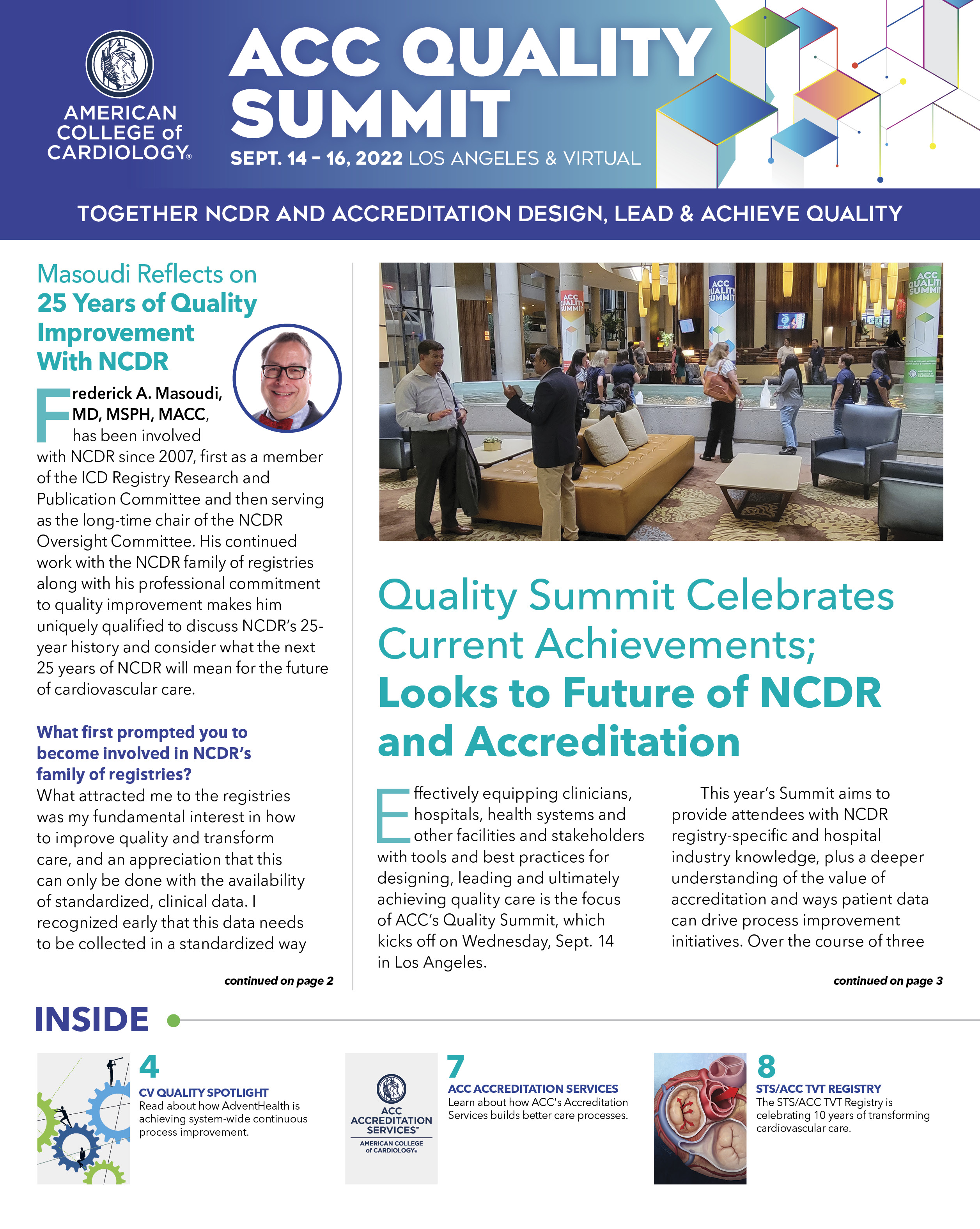Masoudi Reflects on 25 Years of Quality Improvement With NCDR

Frederick A. Masoudi, MD, MSPH, MACC, has been involved with NCDR since 2007, first as a member of the ICD Registry Research and Publication Committee and then serving as the long-time chair of the NCDR Oversight Committee. His continued work with the NCDR family of registries along with his professional commitment to quality improvement makes him uniquely qualified to discuss NCDR’s 25-year history and consider what the next 25 years of NCDR will mean for the future of cardiovascular care.
What first prompted you to become involved in NCDR’s family of registries?
What attracted me to the registries was my fundamental interest in how to improve quality and transform care, and an appreciation that this can only be done with the availability of standardized, clinical data. I recognized early that this data needs to be collected in a standardized way to truly characterize the quality of care that patients receive and to truly understand the factors that may relate to the outcomes they experience in the hospital and beyond.
What are some of NCDR’s greatest accomplishments over the last 25 years?
The NCDR has done a number of remarkable things that reflect the College’s dedication to its Mission to transform cardiovascular care and improve heart health for every patient. To think that a professional society is going to lead its members to think about quality in an environment where there is very little financial incentive to do so is a real tribute to the ACC and NCDR. Another big accomplishment has been the NCDR’s responsiveness to the coverage with evidence development program from the Centers for Medicare and Medicaid Services (CMS). The NCDR has allowed hospitals to participate in these decisions in a meaningful way, and in so doing answer questions that are of key importance to CMS. While research is not the principal objective of the registry programs, NCDR has now contributed to more than 500 peer-reviewed papers in the medical literature and has done a lot to advance our understanding of cardiovascular care in the “real world” – more than any other data source imaginable. Ultimately, NCDR has provided support for quality improvement in a way that has touched the lives of more than 100 million individuals, which is truly its biggest accomplishment.
What has been the highlight of your time working with NCDR registries?
To me, the highlight has been participating in the ACC Quality Summit conference because I always find it such a refreshing and renewing experience. It provides such a perspective on the community of people who are dedicating themselves to improving patient care. There is so much enthusiasm, so much promise, so much mutual aspiration to do better, that it is hard to match the energy and inspiration that comes from the conference.
What do you believe the future of NCDR looks like?
My hope is that other areas of medicine beyond which registries already exist will think hard about adopting this approach to improving care. I think we also acknowledge that participation in a program like NCDR requires a tremendous amount of commitment and time and effort, particularly as it relates to collecting the data required by this clinical granularity that is so important to the work we do. For this reason, addressing the data burden by identifying novel, tech-enabled approaches to collecting data is important. We also need to figure out better approaches to collect data more completely – potentially directly from the patient involved – and think more about the impact of cardiovascular disease beyond those issues that are currently easy to measure. I also think part of the future is in better characterizing the patient’s experience. And finally, we need to understand the value of care. We have focused a lot on quality, but in a time of increasingly scarce resources, we need to be thinking about prioritizing those things that best improve quality and do so at the lowest possible cost.
Clinical Topics: Cardiac Surgery, Invasive Cardiovascular Angiography and Intervention
Keywords: Patient Care Team, Certification, Registries, Accreditation, Hospitals, Transcatheter Aortic Valve Replacement, Quality Improvement, National Cardiovascular Data Registries, ACC Accreditation
< Back to Listings


